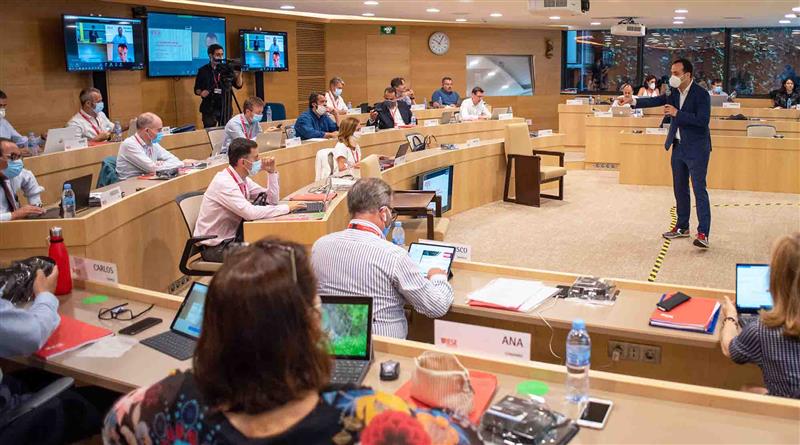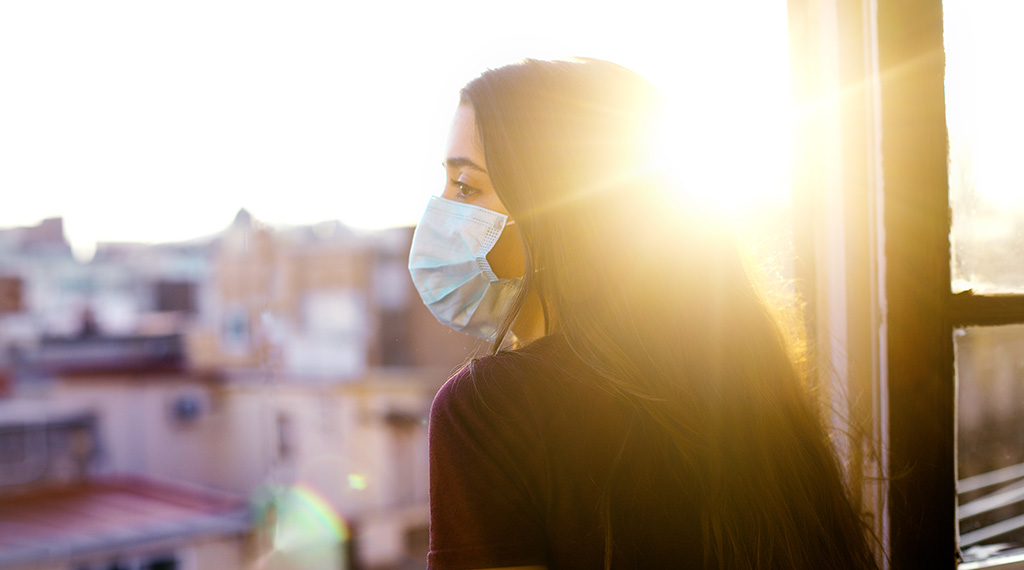Stories
Executives return to IESE classrooms in Madrid and Barcelona
IESE resumes on-campus activity with strict health protocols and hybrid classes
A class Monday on IESE’s Barcelona campus.
Photo: Edu Ferrer
June 15, 2020

IESE today resumes in-person classes and campus activities while following stringent health protocols. The Barcelona and Madrid campuses will host, from today and through July and August, programs geared toward Spain-based executives.
Between 80 and 90 participants each day will pass through IESE classrooms which have been adapted to continue offering a top-quality educational experience while also ensuring student and faculty safety. In recent months, IESE quickly and efficiently moved some of its programs to online formats due to the COVID-19 crisis.
Activities have also resumed on the Munich campus, although ongoing travel limitations have prevented the relaunch of in-person classes. The goal is to resume normal operations on the New York campus in September.
In returning to campus, IESE wants to take part in the gradual return to normal that has begun in many sectors.
“Organizations need to move and act decisively in order to restart and reenergize the economy as soon as possible. Helping businesses protect as many jobs as they can ultimately helps people. At IESE, we’ve resolved to be part of the solution to the crisis,” said Dean Franz Heukamp.
A Plan Built on Three Pillars
To make sure that the return to the campus is carried out in an orderly manner that best protects the health of employees and students, IESE has been working for weeks on an exhaustive protocol that has been certified by the epidemiology team at Barcelona’s Hospital Clinic. The protocol is based on three fundamental points:
- Facilities and people. IESE has prepared its facilities and staff for this new stage with improved technology, redesigned spaces, training for online teaching and other operation operations, and measures concerning flexible schedules and work-family balance.
- Health and prevention. IESE has designed a comprehensive hygiene and prevention protocol that goes beyond that required by health authorities and includes the following measures: all IESE participants and employees must be tested before their first time back on campus; individuals complete a health status questionnaire every day they access the facilities; there are temperature controls at entrances; mask use is mandatory and there is interpersonal distancing of two meters in all spaces. Additionally, cleaning and disinfection measures have been instituted in all reopened spaces, and special air purification systems have been installed.
- Innovation. IESE has planned to relaunch on-campus teaching while maintaining the hybrid (classroom and online) format for any participant who’s unable to attend in person, and by offering a number of new and innovative online programs.
Cutting-Edge Hybrid Formats
In this new, post-confinement stage, IESE aims to continue offering managers a transformative, innovative and, above all, safe experience that will help prepare them to have the sort of positive impact that society needs now more than ever.
Participants who are studying remotely will be able to follow their classes in full, including the use of whiteboards, projections and other materials, through the Zoom platform. Cameras, screens, speakers and microphones have been installed so that professors and students in the classroom can interact with those who are at home, seamlessly and in real time.
Over the last several months, faculty and program team members have been trained in online teaching best practices and incorporated new dynamics in order to reproduce the active experience of the case method in the hybrid format.
In addition, IESE has innovated and launched programs to specifically meet the needs of managers and businesses during the health crisis. Among them is Project Safeguard, focusing on crisis management, and some short online programs on topics such as virtual team management and digital marketing.


